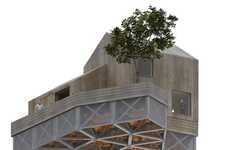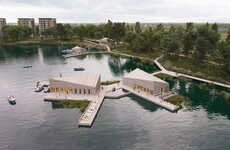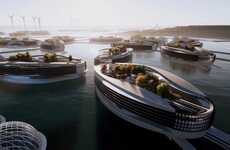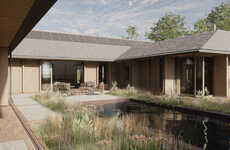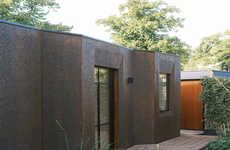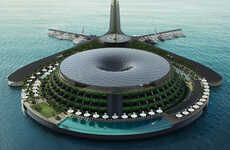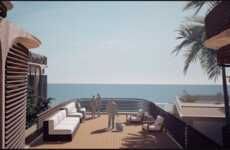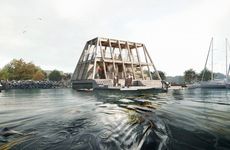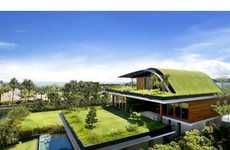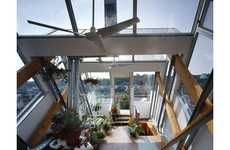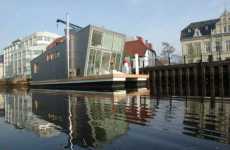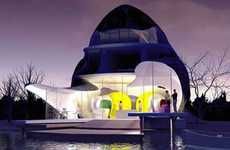
Eco Architecture in Northern England
lourdes sanchez bayas — April 18, 2008 — Eco
This is the winning design for an eco-friendly floating village that is planned for Brockholes Wetland and Woodland Nature Reserve in Preston, northern England. The concept, created by Adam Khan Architects, plans to use wood and other sustainable materials to build this floating village which will be built on underused or unused land.
Implications - More specifically, the plan is to build this over floating platoons. Visitors are promised guaranteed flood protection, allowing them to experience and be connected on a closer basis.
The concept is part of the Newlands Scheme which plans to transform "over 900 hectares of brownfield land into community woodland and green space," accoding to Adam Khan. The support of recreation and wildlife is also a priority for this zero-carbon focused project.
Implications - More specifically, the plan is to build this over floating platoons. Visitors are promised guaranteed flood protection, allowing them to experience and be connected on a closer basis.
The concept is part of the Newlands Scheme which plans to transform "over 900 hectares of brownfield land into community woodland and green space," accoding to Adam Khan. The support of recreation and wildlife is also a priority for this zero-carbon focused project.
Trend Themes
1. Eco-friendly Architecture - The trend of using sustainable materials and innovative designs in architecture, like the eco-friendly floating village, presents opportunities for disruptive innovation in the construction industry.
2. Floating Communities - The concept of building floating villages on underused or unused land presents opportunities for disruptive innovation in real estate and urban planning, as it allows for more efficient use of space and increased resilience to climate change.
3. Nature Conservation - The trend of incorporating green spaces and prioritizing wildlife conservation in development projects, such as the Newlands Scheme, opens up opportunities for disruptive innovation in environmental technologies and ecotourism.
Industry Implications
1. Construction - The construction industry can embrace the trend of eco-friendly architecture by adopting sustainable building materials and incorporating innovative designs to create more environmentally-friendly structures.
2. Real Estate - The real estate industry can explore the concept of floating communities to create unique and resilient living spaces that adapt to changing environmental conditions.
3. Environmental Conservation - The environmental conservation industry can leverage the trend of nature conservation in development projects by implementing new technologies and practices that promote sustainability and protect wildlife habitats.
3.5
Score
Popularity
Activity
Freshness


